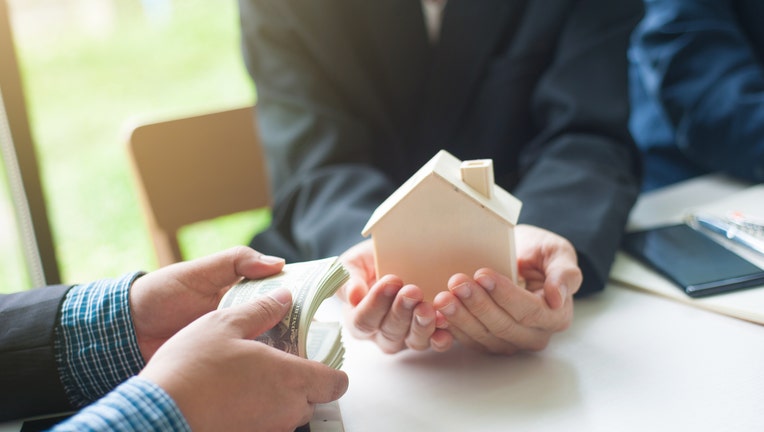5 ways to pay your mortgage off early

Refinance, biweekly payments and other tips that lead to an early mortgage payoff.
If mortgage loans are weighing you down, there are some things you can do to save money and free yourself from that huge monthly mortgage payment. Homeowners looking to pay off their mortgage early have a couple of options to consider, based on their financial bandwidth. Most homeowners have a traditional 30-year mortgage, but if the thought of keeping it for 30 years, 15 years or even another 10 years makes your head spin, find out what you can do.
Check out some of these ideas below on how to cut that mortgage payment and pay off your home much sooner than anticipated. While some strategies may take more personal finance planning than others, the mortgage payoff goal is the same — to save money for your bank account.
1. Refinance your mortgage to a lower interest rate
One option to help pay off your mortgage early is to refinance your mortgage. And it’s a great time to do so thanks to lower loan rates. Credible's online refinance guide — complete with easy tools to help you compare rates and lenders — can help you find the best deals available right now.
A mortgage refinance can work a couple of ways. When you refinance to a lower interest rate, you’re paying more toward the principal balance. You can choose to keep making your original mortgage payment to payoff the principal much faster. Or you can also refinance to as a shorter-term loan, which would help reduce your principal balance sooner.
Say you have 20 years left on a 30-year mortgage, just change the terms to 10 or 15 years. Another option, since the Federal Reserve cut rates last month, is to take cash out from a refinance and put it toward paying down the mortgage faster. You can input some of your information into Credible's online form to find out what rates you qualify for within just three minutes.
MORTGAGE RATES NEAR RECORD LOW — WHY YOU SHOULD REFINANCE NOW
2. Make biweekly payments
Making biweekly payments instead of just your one scheduled monthly payment can go a long way in helping to rid yourself of a mortgage much faster. Believe it or not, this tried and true method adds up to making one entire extra payment a year. Just let your lender know that you will be splitting your monthly mortgage in half by making two biweekly payments every month. Some lenders even have payment plans designed specifically for the biweekly payment borrower. Before getting started, keep in mind that you'll need to inform your lender that the extra payments should go toward the principal and not the interest.
3. Make extra payments with unexpected funds
Don’t sleep on that extra money you have may come across. Things like monetary gifts, payday bonuses, tax refunds or unexpected windfalls, can be put toward the mortgage payoff. An extra payment, whether each quarter, every other month or as you have extra income, is great for expediting that mortgage balance payoff date. Again, remember to let your lender know to apply those extra funds directly to the mortgage principal. This is especially true early on in your mortgage when the bulk of your payments go directly toward the interest.
4. Decrease expenses and apply the savings to your mortgage
Whether it’s cutting the cable cord, bringing your lunch to work or eliminating the fancy coffee drinks, your financial decisions affect your bank account. Take those saved funds and invest them in your mortgage principal. You’d be amazed at how much cutting those small things out of your budget can help.
5 TYPES OF MORTGAGE LOANS FOR HOMEBUYERS: WHICH IS BEST FOR YOU?
5. Rightsize your housing
Maybe your home was perfect for your lifestyle at the time you purchased it. But if your household has changed, whether the kids are grown and out of the nest, you’ve divorced and are in your home solo, or maybe you just don’t want the maintenance tied to the size of your current home, it could be time for a change. One idea is to sell your home and use the equity in it to purchase a smaller home with cash. This eliminates the need for a mortgage altogether -- or at least allows you to pay a hefty down payment upfront.
While paying off your mortgage early is a good idea for some, it may not make good financial sense to everyone. If you have a low interest rate mortgage, then you may want to consider focusing on paying off higher interest rate credit cards and loan accounts. While being mortgage-free is awesome, don’t do it at the expense of other essential savings such as retirement, college tuition or rainy day savings.
Also, review your mortgage documents to make sure you won’t be charged any prepayment penalties, although rare, it’s always good to double-check.

